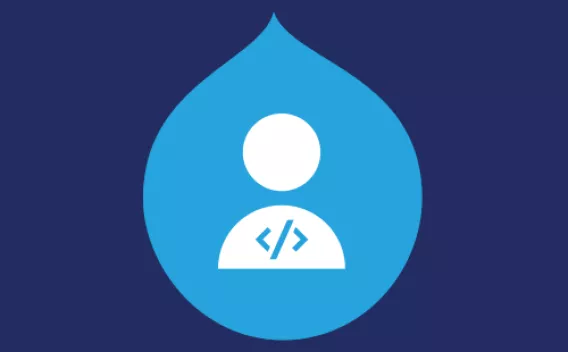Though it's not always a linear process, hopefully with training, we can make the learning process a bit smoother for you, by connecting you to development expertise.
Especially for those who are new to it, learning Drupal is also a series of evaluations. Does Drupal have the right features? Does it integrate with our existing services? Most of this is discovered through site building. I drafted the minimum steps and evaluations in a "How to learn Drupal" guide posted on the course at P2PU. It's not a linear process, but there is an order you can follow which can hopefully make it easier. Main message: do coding at the very end. Think of Drupal as a series of building blocks.
There was a question recently on the LinkedIn Drupal group which sparked this. A poster asked: "W'ts my next step in Drupal?". What should I do next? Some people advised the poster to buy the (quite awesome) Pro Drupal Development book. My response was: It's essential to master sitebuilding first, and tackle coding later. Drupal's API, while fundamental, is not a good starting point for Drupal developers, especially those who are experienced coders from other systems. At Acquia we constantly run into problems on client sites where programmers undermine the existing functionality in Drupal, and cause numerous problems for themselves and their team. It's not a framework- it's a unique tool.
Site building skills are the starting point, as well as the bulk of most Drupal work. And then, move onto custom coding when all avenues have been exhausted. And even when you do code, look for others to collaborate with and reduce duplication of effort in the community.
What is site building?
View video: What is site building?
It's assembling a site from the range of existing modules, and finding out what Drupal can and can't do. By the way, I'm duty-bound to plug this: Acquia's Training Partners are available for Drupal Site Building Training. We have dates in London, LA, New York, DC and Canada with more coming soon. Through site building, you *will* find the edges of what is feasible in Drupal. I remember discovering that there were some queries which were actually just not possible in MySQL. I also discovered that, against my belief, there were somethings I wanted to do, which no one had attempted before... and with good reason.
Though it's not always a linear process, hopefully with training, we can make the learning process a bit smoother for you, by connecting you to development expertise.
I asked Susan Rust of Achieve Internet if I could share her 20 step process which she had posted on that LinkedIn thread... it made me chuckle.
Dear Beginner Drupalist by Susan Rust
- Buy and then forget to read Pro Drupal Development
- Do a simple install and add views and cck
- Build a small website and start blogging
- Play with the setting, roles, permissions, users
- Break your new website, start over
- Read blogs about the top 40 modules, get inspired, install them all
- Break your new website, start over
- Take some Advil, think about reading Pro Drupal Development
- Fall asleep while watching online Drupal tutorials
- Try your new-found osmosis knowledge
- Break your ##@%$ website, start over
- Ponder the wisdom of your new career path
- Build a Wordpress site for comfort and old times sake
- Take some more Advil, start meditating to reduce your blood pressure
- Build a free Drupal sites for some cash-poor non profits
- Get trial-by-fire experience
- Successfully launch your first site
- Fall in love with Drupal
- Be active in the Drupal Community
- Help new people get started
But please do check out the steps I outlined in the "How to learn Drupal" guide and save some of the trial-by-fire parts :)
What would you say to a new Drupallist?
Photo credits: ![]() Some rights reserved by dlofink
Some rights reserved by dlofink






